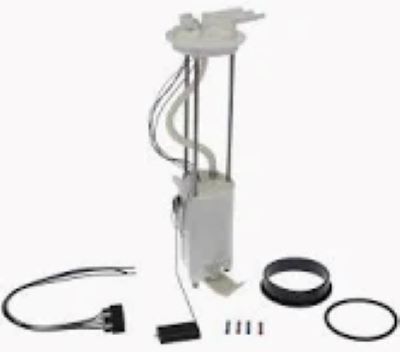If your car's fuel pump makes a loud clicking noise, it might indicate that the issue needs to be resolved immediately. One frequent reason for this is that the fuel pressure is too low, making it so the pump struggles to push fuel through your system. In the event that fuel forces drop under its standard 30 to 80 PSI range, then strain can be added on the pump's motor and sounds will get started with clicking. This will also occur if the fuel filter becomes clogged, pressing you to generate more power overcomes this effect.
Electrical Problems — Sometimes the sound of clicking coming from your fuel pump is derived from a weak battery or faulty wiring. A pump that does not get the full 12 volts it needs to start functions erratically and can make strange noises as attempts are made to build pressure. Below 10 volts, any battery is also not enough for the pump to hit optimal performance – missing out on up to 20% of system efficiency which may cause overheating due wear as you put miles under your belt.
Clicking can be attributed to wear and tear within the fuel pump itself While fuel pumps are often intended to last from 100,000-150,000 miles (more or less), the parts inside also wear out as pump gets older resulting in strange noises. A pump which is several years old can lose as much as 15% of its initial efficiency, creating noise effects from exertion. Replacing an old fuel pump is very expensive, about $300 to $500 but it must be done to prevent further damage (to the system).

Fuel pump relays are a common reason why there may be clicking. A relay that sends power to your pump might click if it's failing and unable to maintain a solid electrical connection. This necessary function can become impeded, which disrupts the fuel flow and causes the engine to hesitate or stall. Fuel pump relays are very cheap, typically between $20-$50 and replacing them early is what stops further problems.
A loose, recently installed fuel pump or even something as minor as not being seated properly can be the culprit. Poor mounting will allow the pump to vibrate and click when running, making it sound more noticeable at idle or low speeds. Properly mounting the pump can fix this without replacing parts.
If you are noticing frequent clicking, it is important to identify the problem before things escalate. Left alone a Fuel Pump that is clicking can fail altogether, often at the worst possible time as usually stranded and either requiring an expensive emergency repair. The sooner these signs are addressed, the longer your vehicle will last and more healthy it's fuel system.